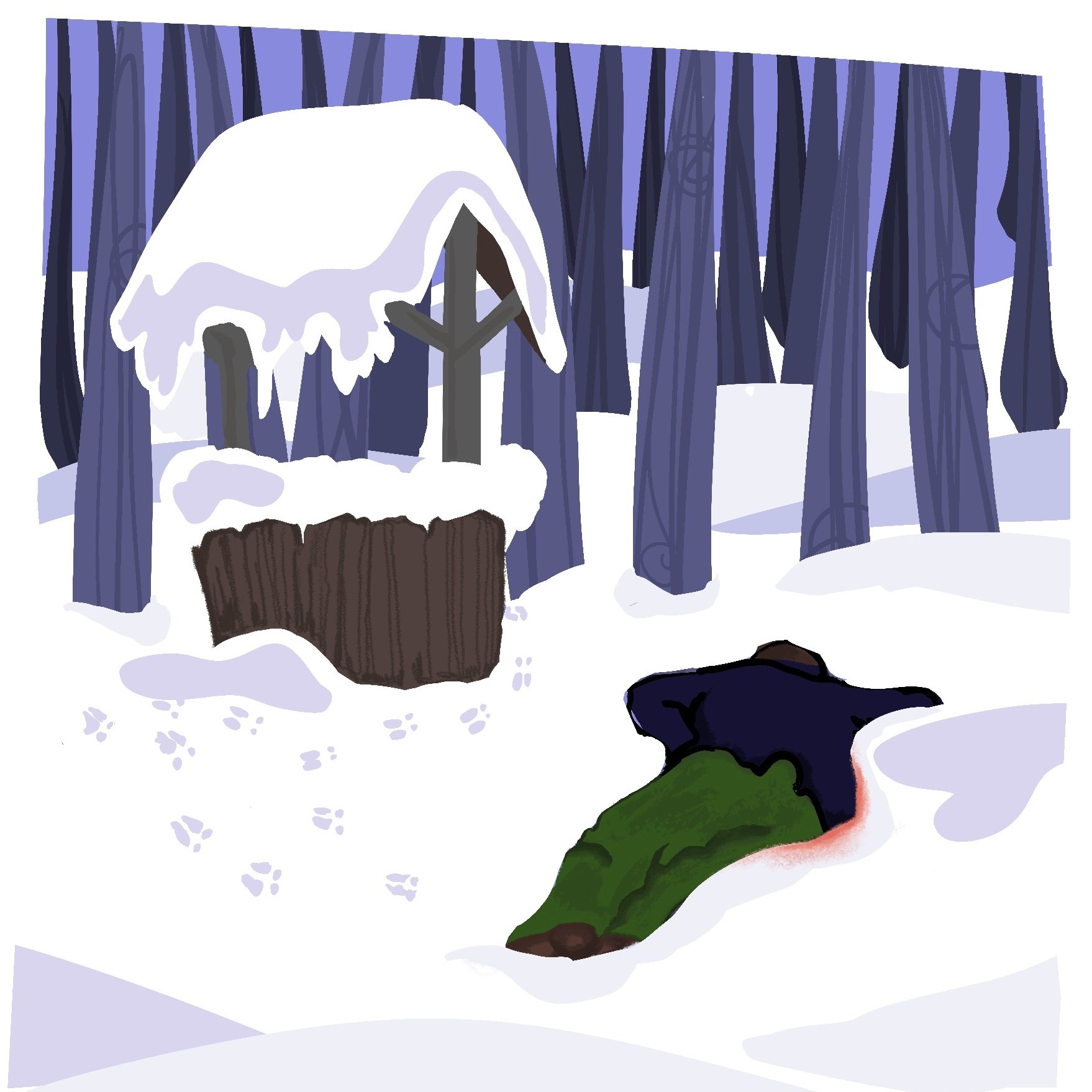Modern Fiction in Translation II: Drive Your Plow by Olga Tokarczuk
Illustration by Anna Webb
Focusing on the theme of literature in translation, in this column I will review novels from a range of cultures across the world, especially looking at those novels that might be otherwise overlooked. Weird and unnerving, beautiful and provoking, the books reviewed are disturbing in the best way, and my hope is that the readers of this column go on to enjoy them as much as I have.
There are murders afoot in a small Polish village, and the police are deliberately ignoring the obvious killers - the animals hunted by the locals, who have risen up to fight back. That's the theory, anyway, according to the protagonist of Olga Tokarczuk's novel Drive Your Plow Over the Bones of the Dead, Janina Duszejko. Janina is one of the most engaging narrators I have ever come across in any work of fiction.
An elderly, fiercely independent recluse, with strongly held and unique beliefs, Janina would, for example, resent my use of her name itself as she frequently bemoans the use of official names; "No one ever remembers them, they're so divorced from a Person, and so banal that they don't remind us of them at all". Accordingly, her account of the events that unfold is peppered with epithets such as "Oddball", "Little Girls", "Dizzy", "Big Foot", and "The Writer". Going off on tangents at every opportunity, Janina's narration makes Drive Your Plow so much more than a simple murder mystery, to the point that the reader sometimes forgets that there is a mystery to solve, and relaxes into the flow of words. Her rambles lead us through intense descriptions of the Polish countryside, and through poignant discussions of old age, illness, beauty, cruelty, fate, companionship and kindness.
The main issue that Drive Your Plow focuses on is the hypocrisy between those who preach kindness but still allow cruelty to take place; it's difficult to elaborate further without spoiling major plot points, but suffice it to say that when it was originally published in Polish, it led to widespread outcry, and was denounced as anti-Christian and pro-ecoterrorism. Whether or not that's the case, it goes into detail about hunting and animal cruelty in rural areas, and readers should be prepared for some unsettling descriptions. The sense of righteous anger and deep, over-flowing compassion for the smallest of things is a beautiful aspect of Janina’s character, and gives the novel a sense of sorrow that couldn’t have been reached with a less empathetic and outspoken narrator.
It’s refreshing to read a female character who is allowed to be cantankerous, and strange, and ill, and to be honest a little insane. Janina’s eccentric interests make for a unique lens through which the story is told – her obsession with minutely detailed astrological predictions and explanations for the lives of people around her, for example, mean that the conclusions she draws are not always the same as those that a reader might come to, and mean that the clues we’re provided are a little eclectic.
Drive Your Plow’s perspective is refreshing and challenges our assumptions of what a narrator should point out to the reader. Janina’s illnesses shape her perception of the world – she refers to them as “Ailments”, capitalizing the word as she does so many others, in a style reminiscent of her beloved poet Blake. Her descriptions of her experience with chronic illness are particularly moving, especially as she is both starkly blunt and wonderfully poetic about the reality of her situation, including the difficulty of knowing something is wrong but not knowing what. “I have a Theory”, she muses, “It’s that an awful thing has happened – our cerebellum has not been correctly connected to our brain. This could be the worst mistake in our programming. Someone has made us badly…We have this body of ours, a troublesome piece of luggage, we don’t really know anything about it and we need all sorts of Tools to find out about its most natural processes…The only coarse and primitive Tool gifted us for consolation is pain. The angels, if they really do exist, must be splitting their sides laughing at us”. This restrained anger at the flawed way the world still causes her pain, and her seeming acceptance, are characteristic of our narrator, and enrich her descriptions.
Besides the plot, an important feature of the novel is the joy at playing with language that both Tokarczuk and the translator of Drive Your Plow into English, Antonina Lloyd-Jones seem to enjoy. One scene in particular comes to mind, namely that in which Janina and her ex pupil Dizzy try to translate a verse of Blake's into Polish, without losing its charm. In the English translation, of course, this has been translated back, adding an extra layer to what Janina describes as “a bit like a game of logic, a complicated form of Scrabble”. Translating Janina’s strange and winding prose must have posed a deeply interesting challenge, and its remaining wittiness, humour and charm is a testament to Tokarczuk’s skill as an author and Lloyd-Jones’ as a translator.
Antonia Lloyd-Jones is a literary translator of Polish into English, and a mentor for the National Centre for Writing’s Emerging Translator Mentorships. She is a prolific translator, and has this year translated another novel by Olga Tokarczuk, The Lost Soul¸ a fable for all audiences. Olga Tokarczuk is an extremely well-renowned Polish author, the recipient of many literary prizes, including the Nike Literary Award, the Man Booker International Prize and the 2018 Nobel Prize for Literature.
